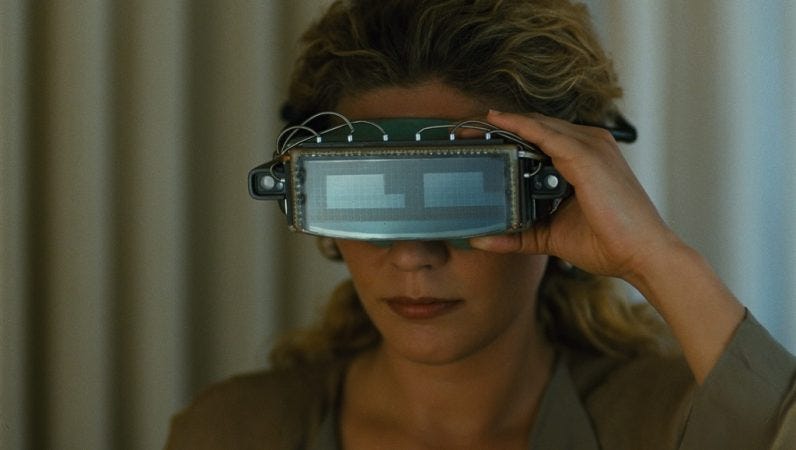2023: The Year Reality Died
To paraphrase Virginia Woolf, on or about December 2006, human character changed. The advent of streaming and social media brought changes to our culture that we are still reckoning with. This past year, 2023, saw one of the biggest ripples come crashing down as a tidal wave: the death of reality.
The signs were there as early as 2004 when Ron Suskind interviewed a Bush administration official who arrogantly said “we make our own reality” and mocked the journalists in the “reality based community” who still thought that facts mattered. At the time the statement was shocking, today it sounds like a totally natural thing to say.
For seventeen years or so we have been increasingly living our lives in the online world and leaving the real world behind. In our online spaces we even joke about how our carefully curated online profiles make us out to be far more attractive, hip, and happy than we actually are in real life. People increasingly get their news from social media, rather than journalistic sources. While this can create the usual distortions inherent in echo chambers, the past few years have seen social media as a vector for conspiratorial thinking.
QAnon is the most prominent example, but there’s also that idiotic woman on TikTok who claims the Roman Empire didn’t really exist, one of many fabulists with thousands of followers. There are literal flat-earthers with big platforms. Beyond differences of opinion, there seems to be an inability for people to even agree on what reality we are living in.
We can’t even really agree on the most basic, provable facts anymore. Crime and unemployment are going down while the GDP is going up, but when interviewed majorities say crime is going up and the economy is in recession. Some of the latter might have to do with the housing market, but much of it has to do with some people on the Right having a political belief that the economy can’t be going well under a Democrat, as well as a belief by many on the Left that things always suck no matter what.
While the lack of consensus on reality has been growing for some time, the dam broke in 2023 because of two things: Elon Musk’s X and AI. While he took over Twitter in 2022, in this past year he has turned our one true forum for online public discourse (as flawed as it was) into a miasmatic swamp of Right-wing propaganda. By promoting people like Alex Jones he is gleefully boosting those most intent on assaulting our shared understanding of reality. I think Musk is deliberately doing this for political reasons (more on that later.)
Because of the AI boom, I cannot know if so many things I encounter, from student papers to emails from school officials to articles I read online are written by a human being or a machine. For example, Sports Illustrated recently tried to create fake writer profiles for the AI-generated articles it put out on its site. They got caught, but I wonder how many sites haven’t been uncovered yet.
I distrust the form AI is taking for so many reasons, but the biggest is that it distorts our understanding of reality to the point that we will simply stop trying to tell the truth from lies anymore. As Hannah Arendt noted, this attitude is necessary for totalitarianism. The enemies of democracy want a confused population, one rootless and wanting the certainty promised by authoritarian leaders who will “make their own reality.” Musk’s fascistic associations and statements give the game away as far as his own contributions to this dynamic.
To be blunt, if we cannot agree on the reality we live in, it will be impossible for the people of this country to find any kind of common purpose. I am pessimistic about the 2024 election because of this, not poll numbers. Because of this country’s insipid tech optimism discourse, few are able to see where the online revolution is leading us. A world without a shared reality will not be a pleasant one to live in. Buckle up.



